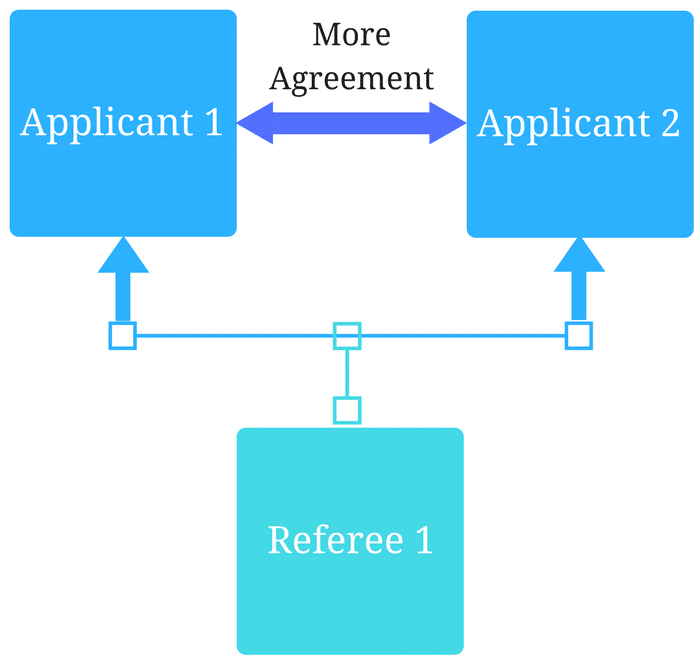Using Acuity Insights to improve accreditation outcomes

July 12, 2022
Jump to:
- Collecting admissions data
- Collecting performance and assessment data
- Collecting clinical experience and log data
- Collecting curriculum data
- Recording assignment data
- Supporting student affairs operations
- Putting your data to work for CQI
The eight-year accreditation cycle for the LCME mandates that between each site visit institutions have a monitoring program in place, ensuring that they continue to meet the standards of accreditation. LCME accreditation standard 1.1 Strategic Planning and Continuing Quality Improvement states:
A medical school engages in ongoing planning and continuous quality improvement processes that establish short and long-term programmatic goals, result in the achievement of measurable outcomes that are used to improve programmatic quality, and ensure effective monitoring of the medical education program’s compliance with accreditation standards.
Achieving this standard is only possible through the collection of lots and lots of data (e.g. learner performance data, program performance, logs, clinical experience documentation, exam scores, and more). On top of data collection, your institution needs to be able to generate valuable insights from this data, zeroing in on details and trends that will inform continuous quality improvement (CQI) for better accreditation outcomes.
With so much data across multiple systems, navigating and making sense of the data to achieve true CQI is a challenge. Encouraging your faculty to make it a primary goal to to surface issues and adjust course throughout the accreditation cycle will allow you to approach your next LCME site visit with documented action and clarity. Leverage the Data Collection Instrument DCI in your accreditation not only for your preparation ahead of your site visit, but also as a means to help monitor and update how your institution is continuing to meet the required accreditation elements
Select the elements your institution wishes to monitor. A common approach is to start with monitoring elements that have been cited in previous surveys. In this blog post, we outline how you can address specific LCME accreditation elements using Acuity’s solutions.
Collecting admissions data
MedEd institutions need to demonstrate their capacity for recruiting learners who possess the intelligence, professionalism, and emotional characteristics to excel as healthcare providers.
Define the qualities your faculty values in prospective learners. Implement admissions assessments that are designed to elicit candid responses from program applicants as they are presented with situations where they need to make value judgments.
Our admissions assessment tools enable admissions officers to get a more rounded picture of applicants. They allow Admissions Offices to measure competencies and attributes beyond academics, and evaluate value alignment with the school’s mission.
The functionalities mentioned above respond to these LCME accreditation elements:
10.2 Final Authority of Admissions Committee
10.4 Characteristics of Accepted Applicants
10.9 Student Assignment
Collecting performance and assessment data
Accreditors want to see that you have an effective mechanism in place to provide learners and teaching staff with honest and timely feedback on their performance. Set up a schedule to send results to faculty and get notified when they have reviewed the information or have comments. Ensure your assessments include narrative feedback details and set your schedule to custom patterns to offer timely feedback during clinical experiences to catch performance concerns early.
Combined with our assessment solution, our CBME tools offer the capability to track competencies or entrustable professional activities (EPAs) to review learner progression and trajectory over time centrally and available directly to the student for independent review.
In addition the ease of assessment ensuring your learners receive grades in a clear and consolidated way on time is critical. Our Assessment and grading solutions ensure you can consolidate, access and release grades to learners precisely and easily.
Putting Assessment, grades, and CBME solutions to work in Acuity Insights power in relation to scheduling will address the LCME accreditation standards below with the reporting to back it up.
The functionalities mentioned above respond to these LCME accreditation elements:
4.4 Feedback to Faculty
8.5 Medical Student Feedback
9.4 Assessment System
9.5 Narrative Assessment
9.7 Timely Formative Assessment and Feedback
9.8 Fair and Timely Summative Assessment
9.9 Student Advancement and Appeal Process
Collecting clinical experience and log data
You need to be able to demonstrate the required patient diagnoses and procedures that learners need to experience throughout their training to gain the appropriate level of experience. If your learners aren’t meeting the requirements you need this information early enough in training to adjust. Many MedEd institutions have students across multiple sites working to achieve their required clinical experiences – Acuity Insights can help track and monitor the log data to show early gaps and help solve these challenges.
Collect and display data about duty hour compliance, patient procedure & encounter logs, student ratings, and faculty rating across clerkship sites. Inform the educational CQI (continuous quality improvement) process, both generally and relating to elements of a novel longitudinal clerkship model. Our One45 program management tools allows you to track Clinical Experience Logs, Grades reporting and Duty Hours, simplifying LCME reporting requirements.
The functionalities mentioned above respond to these LCME accreditation elements:
5.5 Resources for Clinical Instruction
6.1 Program and Learning Outcomes
6.2 Required Patient Encounters and Procedures
6.3 Self-Directed and Life-Long Learning
6.4 Outpatient/Inpatient Experiences
6.5 Elective Opportunities
8.6 Monitoring of Completion of Required Clinical Experiences
8.7 Comparability of Education/Assessment
8.8 Monitoring Student Time
Collecting curriculum data
DCI Standards 6, 7 and 8 address competencies, curriculum objectives, design, content, management, evaluation and enhancement. A significant undertaking to provide the documentation and oversight required.
Acuity Insight’s curriculum mapping offers a central repository to manage and track teaching, easily identify gaps and redundancies in the curriculum and support your CQI initiatives. Getting a clear picture of your curriculum where your learning objectives map to program learning experiences would simplify compliance to reporting requirements.
The functionalities mentioned above respond to these LCME accreditation elements:
6.1 Program and Learning Outcomes
6.3 Self-Directed and Life-Long Learning
Standard 7 and its sub-elements
8.1 Curricular Management
8.2 Use of Program and Learning Objectives
8.2 Curricular Design, Review, Revision/Content Monitoring
8.4 Evaluation of Educational Program Outcomes
8.5 Medical Student Feedback
8.8 Monitoring Student Time
Recording assignment data
Ensuring your learners receive the required experiences at completion of training and providing the evidence that their time included the essential encounters is a key component of accreditation reporting. Acuity’s scheduling tools can help you create, track and update centralized scheduling and simplify the tracking and reporting process.
In addition you can use Acuity Insights to distribute digital handouts, like program and rotation objectives, as links. Accreditors want to see that the goals and objectives of your rotations have been distributed to all residents and faculty. Make the process automatic by sharing handouts to learners and faculty in their eDossier accounts. Use tracking to determine whether the handouts have been viewed. If necessary, have users “sign-off” to prove they have read the information. This protocol makes it easy to show accreditors what has been reviewed and by whom.
The functionalities mentioned above respond to these LCME accreditation elements:
9.1 Preparation of Resident and Non-Faculty Instructors
10.11 Student Assignment
Supporting student affairs operations
Your school needs to demonstrate that it has effective protocols and structures in place to set up learners for success as medical practitioners. Accreditors want to see that learners are provided with the individualized support they need through the different phases of medical school. You must also show that you can provide ample assistance to learners applying for residency.
Providing quick yet holistic advisory support to learners requires centralized access to all relevant learner performance data. Each learner can generate a sea of information and your Student Affairs officers need to be able to identify and highlight key trends from a multitude of records.
Our Analytics solution allows you to easily view and compare learner performance data from different platforms your faculty may be using to store such information. It allows Student Affairs officers to easily query data for key trends and insights via customizable dashboards.
The functionalities mentioned above respond to these LCME accreditation elements:
11.1 Academic Advising
11.2 Career Advising
11.4 Provision of MSPE
11.6 Student Access to Educational Records
Putting your data to work for CQI
Get ahead of each LCME Accreditation site visit and build a review cycle throughout the years in between to monitor and track how your Institution is addressing gaps and concerns.
Acuity’s tools can help simplify your approach to true CQI by giving you the means to collect your data and the power to analyze the data for action.
To learn more about how you can use Acuity Insights to improve your accreditation outcomes, review our case study with Augusta University Medical College of Georgia, or request a demo of Acuity Insights.
Related Articles

How interviews could be misleading your admissions...
Most schools consider the interview an important portion of their admissions process, hence a considerable…
Reference letters in academic admissions: useful o...
Because of the lack of innovation, there are often few opportunities to examine current legacy…
